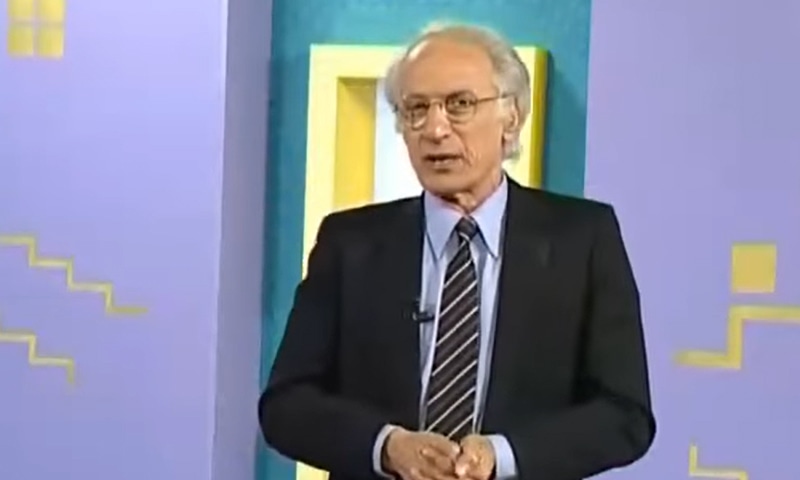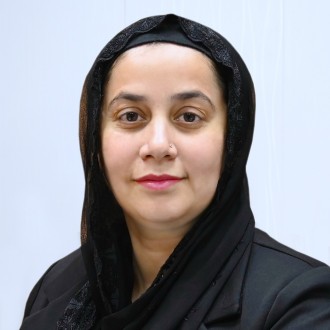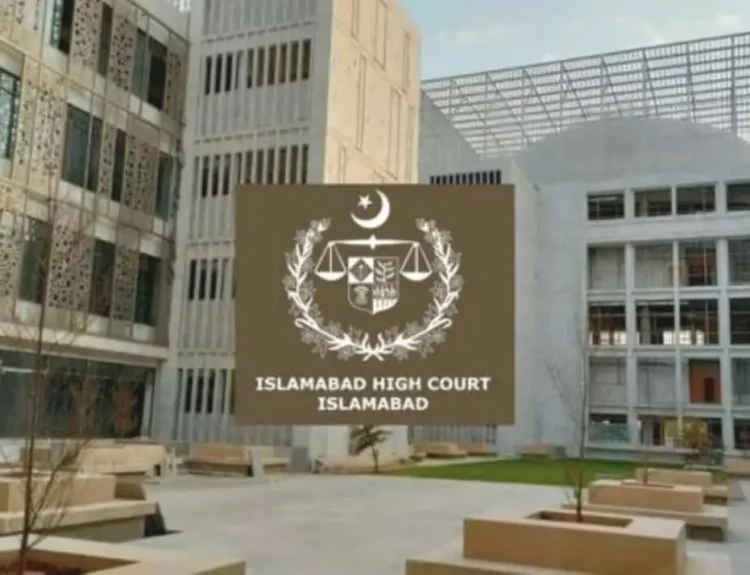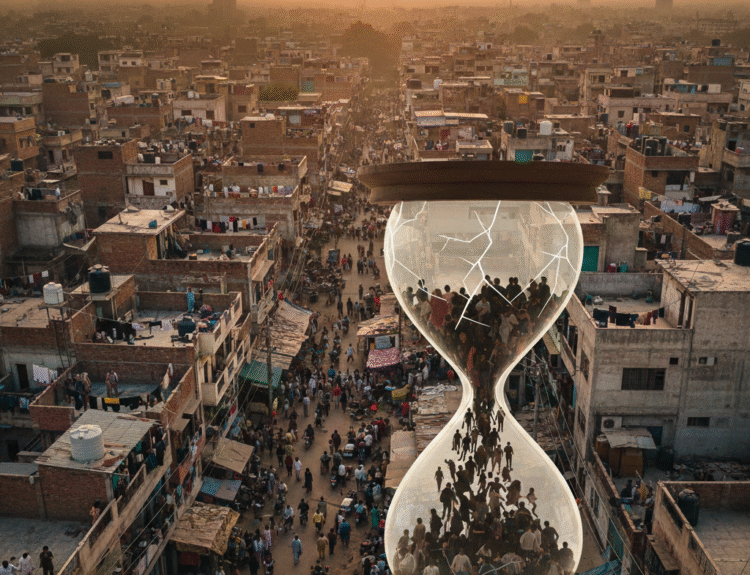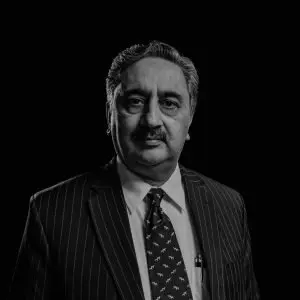Many know about Dr Mehdi Hasan. His achievements. His views. His level of discourse. I can probably not trump that information but would like to introduce the man behind these achievements.
I got to know him in the best part of my life, beginning in 1982. As a student. University of Punjab. Department of Journalism. Professor Warris Mir was head of the department at that time. I was immediately drawn to this thin professor, who had a twinkle in his eyes, witty conversation, and a wide kaleidoscope of knowledge on every subject conceivable. I don’t know if I adopted him or he adopted me. He soon became a father-figure and a Teacher (with a capital T). Not just academics, but also on life. He smoked a pipe, its soft fragrance filling the air. I can see in my mind’s eye, his sensitive hands cradling it as he took a puff and the slim gold wedding band on one finger.
My bestie Sophia Chaudhry and I were always found in his room when our classes were not in session. So much so, that the peon would open his room for us if we turned up at the university earlier than he did. My love affair with coffee started in those days and continues to date. Doctor Sahib took pride in mixing the coffee with coffee-mate to perfection for our daily cuppa. After exactly 20 days, he would not have the funds to replenish the coffee mate. We would have black coffee for the remaining days of the month till his salary came in.
Understanding my desire for learning that was beyond books, he spoke to me for hours. On different issues. Throwing questions at me. Probing. It was a process of teaching that continued through the years, even after I left University.
In February 23,2022 on Wednesday Renowned academic and journalist Dr Mehdi Hasan passed away after protracted illness at his house in Lahore. He was 85 and is survived by wife, Rakhshanda Hasan, and two sons.
Many students whose paths crossed with him never broke their umbilical cord because he owned his students. Their griefs. Their problems. Their issues. He embraced us with his soul. Irrespective of his students’ issues, he always offered solutions. Likewise, he celebrated their achievements and felt great pride in them. When I topped my first year, I took my four friends for lunch at Salt n’ Pepper Mall Road. The fifth on the table was Dr Mehdi Hasan-my revered mentor. Those were not the days of fast food unless you had egg-kebab burgers from a roadside stall (which was delicious).
It was the days of Gen Zia and Punjab University was the melting pot of politics. My roommate in the hostel, Nahida Mehboob Elahi (late), who rose to become a notable lawyer, and I led the campaign against the rightist group; leading marches and putting up posters we had made from our meagre pocket monies. Resultantly, right lost the seat of Secretary-General to the Allied group and we were fired at on the campus. Luckily, both escaped unhurt. They were exciting times. Learning times. The time when I was developing my political sense so to speak. All under the eye of my mentor. He never ever directly or indirectly indoctrinated his students. His focus was on developing our analytical sense; a questioning attitude. Whatever and however those questions were formed.
He was a class into himself. Different from all other teachers. Interestingly, once, new curtains were put up in the rooms of all teachers of the department. To see the same pale green checkered curtains in his room upset him deeply. He tried getting the old ones back but that did not happen. So, I sacrificed a suit. It was in a beige and brown delicate leaf pattern. Before he came, I appliqued these patches all over his curtains. He was delighted like a child. Now, his curtains were different.
Those memories of sunning in the long verandah of the university in winters, chatting. Him puffing on his pipe, us discussing issues springing from geography to politics to media restrictions, or sitting at the khoka (small kiosk) next to the canal of our department block, being served hot sweet tea with thin lentil layered parathas. A lazy boat passing by-are some of the best.
It was through him that I met stalwarts like I A Rehman and Dr Mujib at the MBA Department of Punjab University as his “very qabil student.” He understood my greed for knowledge and put me in the way of such legends for discussions, exchanges, and learning.
University over, I went away to Karachi for work and returned to Lahore in 1990. However, in between my visits to Lahore, meeting him was inevitable. He joined Beacon House National University as Dean of Mass Communication and during the second semester of the University, asked me to join him to teach. I did. This was the beginning of the most rewarding years of my life that spanned a decade or so. Between classes, his room was my sanctuary. All our gup shup, with other members of faculty, would take place here. Wonderful group of people; Qamar Abbas, Mehmood Aali, Wajahat Masud, and many, many others. Dr Mehdi did not like food. He ate just enough to survive. His wife, a known journalist in her own right, would send sandwiches with him for lunch. I would many a time eat his sandwiches so he would be forced to partake lunch sent for Wajahat Masud Sahib. His lunch could feed an army. It meant Dr Mehdi was forced to have at least half a chapatti that day. Mission accomplished!
During years of teaching Media Law, I felt the need for a reference book on the subject. Putting together laws compared with laws of other countries, and case laws with discussion. I simply told him, “I am planning to write a book.” I had not mentioned which subject. As I taught Advertising as well (my first profession), it could have been either. Dr Mehdi smiled and promised me books on the subject. The next day, he came armed with two fat volumes on media laws. Surprised, I asked how he knew it was this subject and not the other. He smiled some more. He told me to put in anything I could not find a good reference for as a quote from him. I had an open cheque on it. Needless to say, he was Guest of Honor at the launch of my book in 2012 in Nairang Gallery Lahore.
“It is not a tragedy that great people die. The tragedy is there are none to replace those gone,” Dr Mehdi would state. Truer words were never spoken.
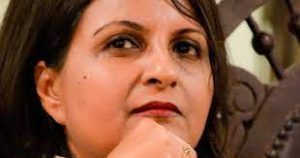 Yasmeen Aftab Ali – The writer is a lawyer, academic and political analyst. She has authored a book titled ‘A Comparative Analysis of Media & Media Laws in Pakistan.’ She can be contacted at: yasmeenali62@gmail.com and tweets at @yasmeen_9.
Yasmeen Aftab Ali – The writer is a lawyer, academic and political analyst. She has authored a book titled ‘A Comparative Analysis of Media & Media Laws in Pakistan.’ She can be contacted at: yasmeenali62@gmail.com and tweets at @yasmeen_9.
